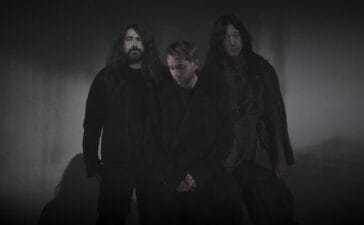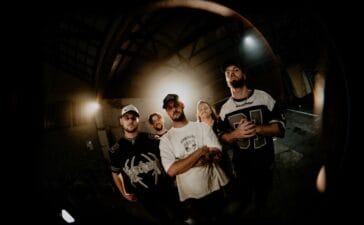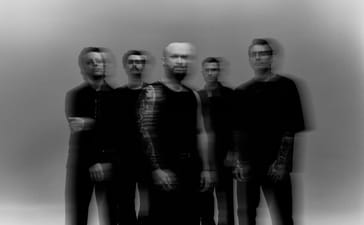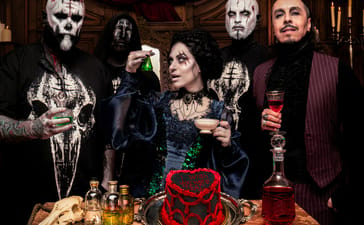“That’s a typical question somebody would ask me,” Josh Katz of Badflower says. He was asked about whether he continues to fight the anxiety he’s been singing about since the band’s inception, although it feels uncomfortably personal to check if someone’s managed to kill a monster like that a few minutes into a Zoom meeting.
“It doesn’t happen really at all anymore,” the frontman shares. “When you’re in it, it feels like it’s going to last forever and you just have to figure out a way to deal with it. But then when it goes away… it’s like a year will go by, and I’ll think, ‘I haven’t had a panic attack in a year.’ That’s crazy. I used to have them every single day.”
Once self-appointed as “the kid with the rage” on the rockers’ first full-length outing OK, I’m Sick, he attributes getting through to the other side to experience, time, and age—although whether that counts as a positive thing for Katz is another story entirely. Having just dropped the single “Detroit,” an ode to a past when the band was still trying to make it, Katz has a new challenge to contend with: what do you do when you’ve arrived where you always wanted to be?
Now gearing up to release their third studio album, Badflower have played late-night TV, the world’s biggest festivals, and had a song go gold, but Katz reiterates, “It’s not as fun as it looks. I think that’s what ‘Detroit’ is about, really, thinking becoming a rock star was going to be a certain way and then it feeling very different once you’re there.” While he didn’t necessarily want his music to sound like blink-182, growing up he envied “the amount of fun that it looked like they were having on stage.”
“Nobody has that anymore. It doesn’t really exist, because socially we’re different now, I mean humanity, everybody’s different… Being a rock star isn’t as fun. You’re really just an Instagram influencer at this point. That’s not what I ever wanted to be.”
“You’re really just an Instagram influencer at this point. That’s not what I ever wanted to be.”
His candid disillusionment with the industry is refreshing, albeit bleak—at total odds with the conclusion you draw when you see Badflower play live that this is categorically what Katz was always meant to do. Fans emphatically scream words back to him, sometimes crying, frequently getting them permanently inked, and almost always leaving a show changed indelibly. To move his audience like that, Katz rips open the wounds he has written about for hundreds night after night, then sews himself shut just to do it all again the next day.
“It’s never devastating,” he clarifies. “I’m kind of a masochist with stuff like that. I like how that feels… [But] it gets intense when the audience is reacting in an intense way,” he continues. “If I see people tearing up, knowing they’ve experienced something and that this song has done something for them, it’ll send me back into my memory of how I felt when I wrote the song. That can be really intense.”
It’s in that moment—when everything means something again—that things make sense for Katz, and the extraneous bullshit it takes to get on that stage fades away. Badflower’s upcoming record will dive into that territory, when Katz is ready to share it with the world.
“I think the theme of the album, at least for me, is the search for that drive, trying to understand what my motivation is for making music. Now that I’ve said so much in the past, I’ve told so many stories, what story is left to tell that’s worth telling and putting out into the world other than ‘Here’s my music, I’m cool, buy it so I can make money?’ That doesn’t satisfy me. I’m actually really uncomfortable with the concept of that.”
He stresses that what you do put out as an artist is just as important as what you don’t, but when people’s paychecks depend on your art, defending your integrity becomes a delicate skill to master. “Everybody says, ‘Chase your dreams, if you do what you love, you’ll never work a day in your life.’ I think that’s bullshit.”
Having said that, and in spite of it all, Katz isn’t ready to slam his fingers in a doorway and hang up his guitar just yet.
“I feel like I’ve achieved a lot, and there are certain times when I’m like, ‘Am I done? Did I do everything I needed to do?’ But at the same time, the drive still exists in me, so clearly I’m not.” What does “more” mean to him? “More to be done in my life and career, and more legacy to leave. If I can figure out what that is, I want to figure it out, and I want to leave it.”











